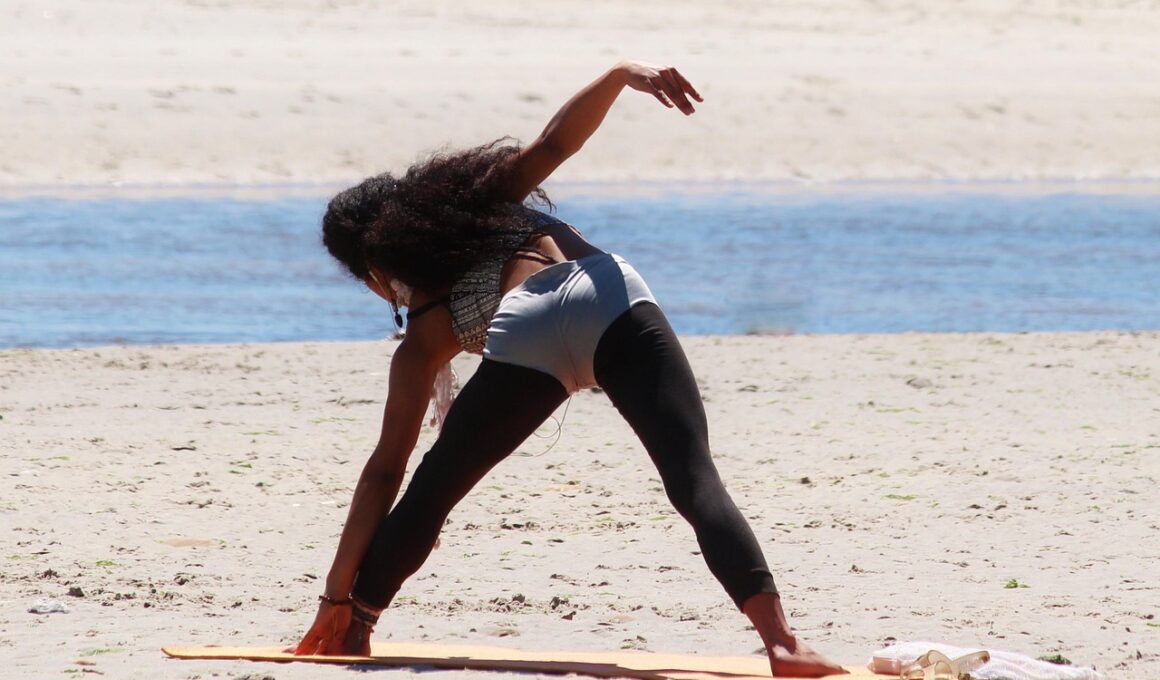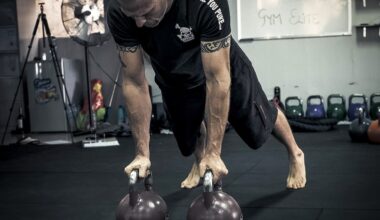Summary: Why Pilates is a Key Practice for Managing Stress
Pilates is not just a physical fitness regime; it serves as a powerful tool for managing and reducing stress. This mind-body practice emphasizes core strength, flexibility, and body awareness, all of which contribute to a holistic approach to well-being. Through controlled movements and focused breathing, individuals can experience a significant decrease in stress levels. Emphasizing control over motion allows practitioners to create a sense of calm and focus, which is vital in tackling everyday stressors. Furthermore, Pilates enhances physical endurance and strengthens the body, which is beneficial for overall health. This additional strength helps individuals face challenges with a greater sense of resilience. By enabling better posture and alignment, the practice also helps reduce physical stress on the body, leading to improved mental clarity. Engaging in Pilates can be an effective way to shift focus away from worries and stressors as it requires concentration on the movements. Whether practiced alone or in a class setting, Pilates fosters a supportive environment to relieve tension. Many individuals turn to Pilates during stressful times, highlighting its efficacy as a method for achieving a balanced state of mind.
The connection between mind and body that Pilates promotes is essential in combating stress. It allows individuals to be present in the moment, enhancing mindfulness. Generally, mindfulness is shown to be a powerful tool for reducing stress levels. Pilates encourages participants to be aware of their breathing patterns, which is a fundamental aspect of the practice. Incorporating deep, mindful breaths contributes to relaxation and eases muscle tension. Additionally, it prepares the mind for the movements, fostering a deeper connection to the body. When focusing on breathing and movement, participants often experience a reduction in negative thought patterns, allowing them to let go of stress. This mental release is crucial, as stress is often exacerbated by overthinking and anxiety. Practicing Pilates helps create a calmer state of mind, which is beneficial in all areas of life. Regular sessions of Pilates can contribute to increased resilience against stressors, creating healthy coping mechanisms. Furthermore, participants often report improved sleep quality, which is vital for managing stress. Lack of sleep and poor rest can lead to heightened stress levels, showcasing how Pilates can play a pivotal role in overall health.
The Physical Benefits of Pilates
A significant aspect of Pilates is its myriad physical benefits that extend to stress reduction. Engaging in regular Pilates workouts strengthens the core muscles, which support the spine and contribute to better posture. Good posture can have a considerable effect on one’s energy levels and overall well-being. Many people suffer from back pain and tension as a result of poor alignment, which leads to discomfort and stress. By addressing these physical issues, Pilates combats underlying problems that contribute to stress. Furthermore, the focus on controlled, flowing movements promotes flexibility, which can help ease physical tension accumulated during the day. As participants become more flexible, they often experience less rigidity in their movements, fostering a sense of freedom and relief from tightness. The gentle yet effective movements of Pilates make it accessible to people of all fitness levels, making it a versatile option for stress management. Additionally, the community aspect of group classes allows for social interaction, providing a supportive space to share experiences. This social connection can further contribute to stress relief, showing how Pilates addresses mental and emotional health alongside physical fitness.
Incorporating Pilates into a weekly routine provides individuals with a structured time to focus solely on themselves. This dedicated time for self-care is paramount in today’s fast-paced society, where stress often takes precedence over personal well-being. By setting aside time specifically for Pilates, individuals commit to prioritizing their mental and physical health. This ritual can create a calming effect as it allows for reflection and connection to one’s body. Building consistency in practice not only instills discipline but also creates a sense of achievement, further enhancing feelings of well-being. The regular practice of Pilates cultivates a sense of empowerment in participants. As they grow stronger and more familiar with the movements, they develop confidence that transcends their workouts and resonates in various life aspects. Engaging with this discipline fosters a mindset geared toward positive thinking and resilience. The personal progress seen through Pilates becomes a source of motivation to tackle other areas of life that may be causing stress. Establishing a positive cycle of empowerment, mindfulness, and community, Pilates serves as a complete approach to managing stress effectively.
Stress Management Strategies Through Pilates
Managing stress through Pilates can be complemented by incorporating various strategies to enhance its effectiveness. Mindfulness and meditation can be implemented alongside Pilates practices, creating a comprehensive stress reduction plan. During Pilates sessions, practitioners can focus on their breath, which mirrors mindfulness techniques. This combo of breath control and mindful movement enhances relaxation and focus, which can significantly lower stress levels. Additionally, setting personal goals within Pilates can channel stress into motivation for improvement and personal development. Participants can measure their progress and celebrate small victories, enhancing feelings of accomplishment. Finding a supportive Pilates community is another beneficial strategy; surrounding oneself with like-minded individuals provides morale and encouragement to maintain the practice. Additionally, regular communication with an instructor can help tailor the sessions to address specific areas of stress or tension. This makes the practice more relevant and effective for individual needs. Nutrition can also play a role in stress management; combining a healthy diet with regular Pilates sessions enhances overall well-being and equips participants to face life’s challenges without succumbing to stress-induced habits.
Stress is often exacerbated by neglecting one’s own needs, and Pilates encourages practitioners to prioritize self-care. Engaging in Pilates regularly creates a structured way to focus on body wellness amid life’s chaos. Actively participating in Pilates cultivates a nurturing relationship with oneself, enabling individuals to recognize and respond to their needs. Various styles of Pilates can accommodate diverse preferences, making it an appealing option for many. From beginners to advanced practitioners, everyone can enjoy the calming benefits of Pilates, allowing for personal exploration in motion. As individuals grow familiar with the practice, it becomes easier to integrate principles of Pilates into daily life. This includes improved posture while sitting at a desk, alleviating long-term tension and stress. Moreover, integrating movement into daily routines, inspired by Pilates principles, encourages people to stay active even when away from the mat. Fostering a lifestyle filled with mindful movement can address stress holistically and sustainably. Engaging in consistent practices that advocate for one’s well-being leads to a resilient approach, equipping individuals with the right skills to face stressful situations with clarity and composure.
Conclusion: Embracing Pilates for a Balanced Life
In conclusion, incorporating Pilates into one’s routine is a powerful strategy for managing stress effectively. Through its focus on core strength, flexibility, and mindful movements, Pilates promotes a balanced state of well-being. By leveraging physical benefits along with mental awareness, practitioners can experience significant reductions in stress levels. The practice encourages a deeper connection to oneself, allowing for emotional growth and resilience in daily life. Investing time in Pilates is investing time in health—a form of self-care that fosters personal empowerment. The consistent practice of Pilates is a commitment to continuous improvement, highlighting the importance of self-love and care. Additionally, finding a supportive community enhances the experience, allowing participants to share and connect over personal challenges. Many individuals discover that Pilates enriches their lives, creating habits and mental patterns that contribute positively to stress management. Ultimately, embracing Pilates can lead to a fulfilling, balanced life, where well-being is prioritized, and stress becomes manageable. As such, Pilates stands out as an essential practice not only for physical fitness but also for emotional resilience and mental clarity.


